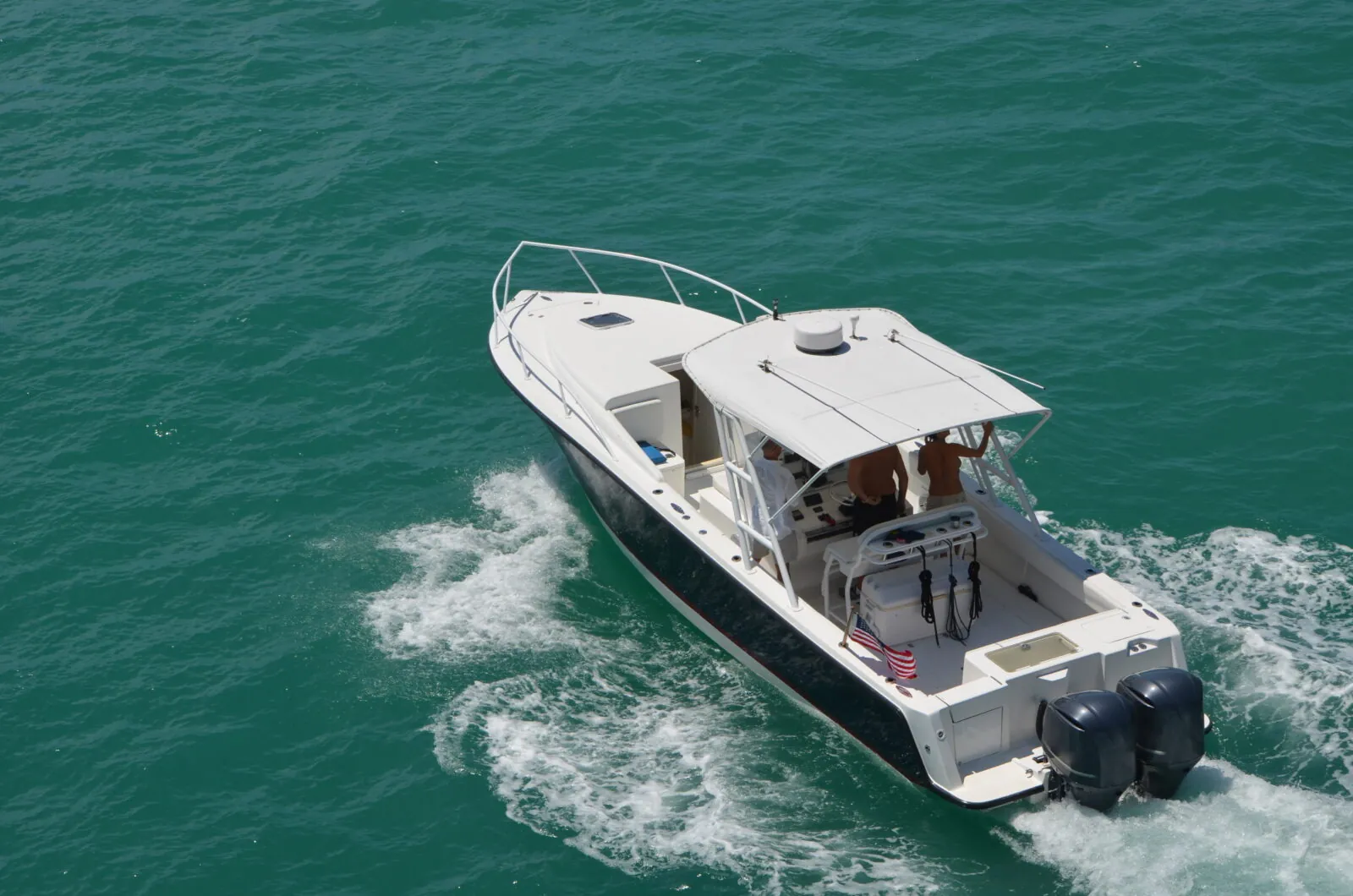Florida is known for its beautiful coastlines, vast network of waterways, and vibrant boating culture. With thousands of registered vessels, the Sunshine State is one of the most popular destinations for recreational boating in the U.S. However, this high level of activity increases the likelihood of boating accidents, ranging from minor incidents to severe collisions. For boat operators and passengers, understanding the legal requirements, safety regulations, and proper steps to take after a boating accident is essential for protecting lives, property, and legal rights.
This guide offers a deep dive into all aspects of boating accidents in Florida, including prevention, reporting, filing insurance claims, and navigating legal complexities. By staying informed, you can minimize risks and respond effectively when an accident occurs.
Understanding Boating Accidents in Florida
Boating accidents can happen even to experienced operators. Many are preventable, but others arise from unforeseen circumstances. Awareness of the most common causes and their potential consequences is key to improving safety on the water.
Common Causes of Boating Accidents
Accidents occur due to a wide range of factors. Some of the most common causes in Florida include:
- Operator Inexperience
Boating requires knowledge of navigation, safety procedures, and Florida’s waterways. Inexperienced operators often lack the skills needed to safely handle a vessel, especially in busy or challenging environments. Many accidents are the result of simple mistakes that could have been avoided with proper training. - Alcohol Consumption
Boating under the influence (BUI) is not only illegal but also extremely dangerous. Alcohol impairs judgment, coordination, and reaction times, leading to a significant number of boating accidents in Florida. The state enforces strict penalties for operating a vessel while intoxicated. - Excessive Speed
High-speed boating reduces an operator’s ability to react to obstacles, other vessels, or sudden changes in the waterway. Speeding is a leading cause of collisions and other accidents. - Equipment Failure
Mechanical malfunctions can occur when vessels are poorly maintained. For example, engine failures, steering issues, or faulty safety equipment can escalate minor incidents into major accidents. - Weather Conditions
Florida’s weather can be unpredictable, with sudden storms, high winds, and rough waters posing serious risks. Operators who fail to check weather forecasts before heading out are more likely to encounter dangerous situations.
Consequences of Boating Accidents
The impact of a boating accident can be far-reaching:
- Injuries: Accidents often result in injuries, ranging from minor cuts and bruises to severe trauma such as broken bones, head injuries, or spinal damage.
- Fatalities: Tragically, boating accidents sometimes result in loss of life, particularly if passengers are not wearing life jackets or if emergency assistance is delayed.
- Property Damage: Collisions can cause significant damage to vessels, docks, and other structures, often resulting in costly repairs.
- Legal and Financial Liabilities: Boat operators found at fault for an accident may face lawsuits, fines, or even criminal charges, depending on the circumstances.
Legal Requirements for Reporting a Boating Accident in Florida
Florida has strict laws regarding the reporting of boating accidents. Knowing these requirements ensures compliance and protects your legal rights.
When Must You Report a Boating Accident?
Not all boating accidents require official reporting. However, Florida law mandates that you report an accident if it involves any of the following:
- Death: Any fatality resulting from a boating accident must be reported immediately.
- Disappearance: If a person is missing under circumstances suggesting injury or death, authorities must be notified.
- Injury: Any injury that requires more than first aid is considered reportable.
- Significant Property Damage: If property damage exceeds $2,000, you must file a report.
Who to Contact?
Accidents must be reported to the appropriate agency based on the circumstances:
- Florida Fish and Wildlife Conservation Commission (FWC)
The FWC is responsible for enforcing boating laws and handling most accident reports in the state. They are the primary agency for incidents occurring in Florida’s waters. - U.S. Coast Guard
If the accident occurs in federal waters or involves a commercial vessel, the Coast Guard should be contacted. - Local Law Enforcement
Depending on the location of the accident, local police or sheriff’s departments may assist in responding to and documenting the incident.
How to File a Report
You must file a formal report within 48 hours if the accident involves death, disappearance, or serious injury. For property damage exceeding $2,000, the report must typically be filed within 10 days. The report should include:
- The time, date, and location of the accident.
- Descriptions of the vessels involved.
- Details of injuries, fatalities, or property damage.
- A narrative explaining how the accident occurred.
Reporting ensures that there is an official record of the incident, which is crucial for insurance claims and legal proceedings.
Steps to Take After a Boating Accident
Knowing how to respond after a boating accident can save lives, minimize damage, and protect you from legal or financial complications. Here’s what to do:
- Prioritize Safety
Your first responsibility is to ensure the safety of everyone involved. Take the following steps:
- Assist Injured Parties: Provide first aid if possible and ensure that anyone in the water is wearing a life jacket or using a flotation device.
- Prevent Further Harm: If the vessel is in a dangerous position (e.g., at risk of sinking or blocking a navigable channel), move it to a safer location if it’s safe to do so.
- Notify Authorities
Contact the appropriate authority—FWC, Coast Guard, or local law enforcement—based on the nature and location of the accident. Timely reporting ensures that help arrives quickly and that you comply with legal requirements.
- Document the Scene
Gather as much evidence as possible. Use your phone or camera to take photos of:
- The vessels involved.
- Any visible damage or injuries.
- The surrounding environment, including water conditions and landmarks.
Collect contact information from witnesses and other involved parties. Document everything you remember about the accident while the details are fresh in your mind.
- File an Official Report
Submit a formal accident report to the appropriate authority. This step is crucial for creating an official record of the incident, which can be used for insurance claims or legal actions.
Boating Insurance Claims: How to File and What to Expect
If your vessel is insured, filing an insurance claim is an important step after an accident. Here’s how the process works:
Steps to File a Claim
- Notify Your Insurance Provider: Report the accident to your insurer immediately. Many policies require prompt notification.
- Submit Evidence: Provide photos, the accident report, witness statements, and repair estimates to support your claim.
- Work with Adjusters: An insurance adjuster may inspect the damage or request additional documentation before approving your claim.
Common Types of Coverage
- Liability Insurance: Covers damages or injuries caused to others.
- Collision Insurance: Pays for damage to your vessel.
- Medical Payments: Covers medical expenses for injuries sustained during the accident.
When to Hire a Maritime Attorney
Certain situations require the expertise of a maritime attorney. If your accident involves complex legal or financial issues, hiring an attorney can protect your interests.
When Should You Seek Legal Help?
- Serious Injuries or Fatalities: If the accident results in life-altering injuries or loss of life, legal representation is crucial.
- Disputed Liability: When there is disagreement over who is at fault, an attorney can gather evidence and build your case.
- Insurance Disputes: If your insurer denies or undervalues your claim, an attorney can negotiate on your behalf.
- Complex Legal Issues: Maritime law is a specialized field, and an attorney with experience in this area can help you navigate jurisdictional or regulatory challenges.
Frequently Asked Questions About Boating Accidents in Florida
Do I need to report every boating accident in Florida?
No, not every boating accident requires reporting. Florida law mandates that an accident must be reported if it involves a death, the disappearance of a person under circumstances suggesting injury or death, an injury that requires medical attention beyond first aid, or property damage exceeding $2,000.
Who do I contact to report a boating accident in Florida?
You should report the accident to the Florida Fish and Wildlife Conservation Commission (FWC), as they are the primary agency responsible for managing boating safety. In some cases, such as accidents in federal waters or those involving commercial vessels, you may need to contact the U.S. Coast Guard. Local law enforcement can also assist if the accident occurs within their jurisdiction.
How soon do I need to file a report after a boating accident?
The timeframe for filing a report depends on the severity of the accident. If the accident involves
death, disappearance, or a serious injury, you must report it immediately. For accidents involving property damage exceeding $2,000, the report must typically be filed within 10 days.
What happens if I don’t report a qualifying boating accident?
Failing to report a boating accident that meets the legal criteria can result in fines, penalties, and complications with insurance claims. It is important to follow Florida’s legal requirements to avoid these consequences.
Can I file an insurance claim without reporting the accident?
Most insurance companies require an official accident report to process your claim. Reporting the incident ensures you have the necessary documentation to support your case.
Contact The Cruise Injury Law Firm Today
Boating accidents can have long-term consequences, including injuries, financial losses, and legal disputes. If you’ve been involved in a boating accident in Florida, don’t leave anything to chance. Contact The Cruise Injury Law Firm today to ensure your rights are protected. Whether you need help with an insurance claim or a liability case, a qualified lawyer can provide expert guidance.
Stay informed, follow Florida’s boating laws, and enjoy your time on the water responsibly. Safe boating starts with preparation!



